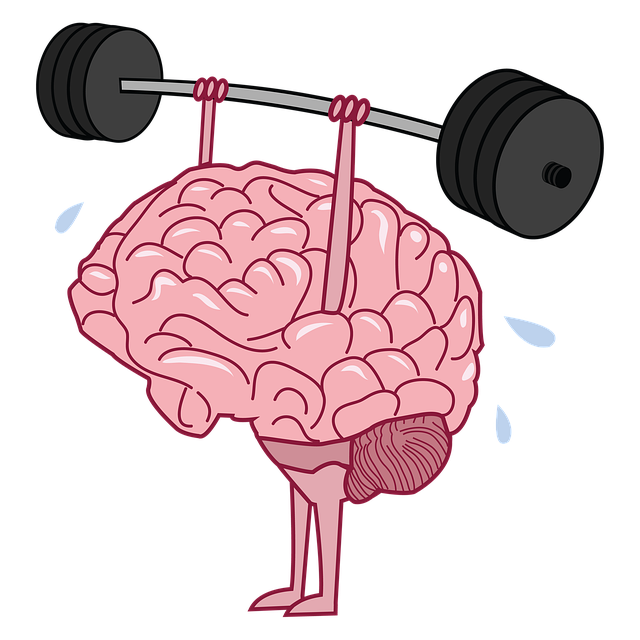In Colorado Springs Mandarin Chinese Speaking Therapy, cultural sensitivity is crucial for effective data collection and mental health assessments. Trained professionals use tailored strategies to overcome language barriers, reduce stigma, and encourage open discussions about mental illness, enhancing data quality and inclusivity. Advanced quantitative techniques analyze patient outcomes and treatment efficacy, while qualitative assessments explore clients' experiences and beliefs for personalized treatment plans. Compelling presentations of key insights, trends, and recommendations drive positive change in the community.
“Mental health data analysis is a critical component of providing effective therapy in diverse settings, including Colorado Springs’ Mandarin Chinese speaking communities. This article explores the intricate process of analyzing and interpreting patient outcomes from these unique contexts. We delve into the importance of understanding data collection methods specific to these communities, the power of statistical analysis in identifying trends, and the role of qualitative assessments for cultural sensitivity. Additionally, we highlight best practices for presenting research findings to stakeholders.”
- Understanding Mental Health Data Collection in Colorado Springs Mandarin Chinese Speaking Therapy Settings
- The Role of Statistical Analysis in Interpreting Patient Outcomes
- Qualitative Assessment and its Impact on Cultural Sensitivity in Therapy
- Presenting and Communicating Findings Effectively to Stakeholders
Understanding Mental Health Data Collection in Colorado Springs Mandarin Chinese Speaking Therapy Settings

In Colorado Springs, Mandarin Chinese speaking therapy settings present unique opportunities and challenges for mental health data collection. With a diverse population, it’s essential to understand cultural nuances when gathering and interpreting data related to mental well-being. The process involves tailored strategies to ensure accurate assessments, considering language barriers and the sensitive nature of mental illness discussions.
Effective data collection in these settings requires trained professionals who can facilitate open conversations while fostering positive thinking and empathy building strategies. By addressing the unique needs of Mandarin Chinese speakers, therapists contribute to Mental Illness Stigma Reduction Efforts, creating a more inclusive environment for those seeking support. This approach not only enhances data quality but also encourages individuals to openly discuss their mental health concerns.
The Role of Statistical Analysis in Interpreting Patient Outcomes

In the realm of mental health care, particularly at centers like Colorado Springs Mandarin Chinese Speaking Therapy, statistical analysis serves as a powerful tool for interpreting patient outcomes and guiding treatment strategies. By employing sophisticated quantitative methods, therapists and researchers can gain deep insights into the effectiveness of various therapeutic approaches, enabling them to tailor interventions to individual needs. This data-driven perspective is crucial in evaluating progress, identifying areas of improvement, and ultimately enhancing patient well-being.
Statistical analysis plays a pivotal role in navigating the complexities of mental health data. It helps quantify changes in symptoms, track treatment adherence, and assess the impact of communication strategies, such as those incorporated into Mental Illness Stigma Reduction Efforts. Furthermore, these analyses contribute to Self-Esteem Improvement by providing measurable evidence of progress, fostering a more positive outlook among patients and encouraging them to continue their journey towards recovery.
Qualitative Assessment and its Impact on Cultural Sensitivity in Therapy

In the realm of mental health data analysis, particularly within contexts like Colorado Springs Mandarin Chinese Speaking Therapy, qualitative assessment plays a pivotal role in enhancing cultural sensitivity during therapy sessions. This approach delves into clients’ experiences, beliefs, and personal narratives, offering insights beyond quantitative measures. By exploring these depths, therapists can gain a nuanced understanding of their patients’ unique cultural backgrounds, which is essential for tailoring effective treatment plans.
The impact of qualitative assessment extends to fostering resilience building, emotional intelligence, and coping skills development. It allows therapists to address cultural nuances that might influence an individual’s mental health expression and response to therapy. This sensitivity ensures that interventions are not only culturally competent but also empowering, meeting clients where they are while guiding them towards growth and healing.
Presenting and Communicating Findings Effectively to Stakeholders

Effective presentation and communication of mental health data are pivotal for engaging stakeholders and driving positive change. When presenting findings from therapy sessions or research studies, especially in diverse communities like Colorado Springs Mandarin Chinese Speaking Therapy, it’s crucial to tailor your approach to suit different audiences. This might involve translating complex data into easily digestible information, utilizing visual aids, and ensuring clarity in language to accommodate both technical experts and non-specialist stakeholders.
A well-structured presentation should highlight key insights, trends, and actionable recommendations related to conflict resolution techniques, resilience building, and stress reduction methods. For instance, data could illustrate the effectiveness of specific interventions in improving mental well-being among Chinese-speaking populations in Colorado Springs. By presenting such findings concisely and compellingly, therapists, researchers, and policymakers can collaborate more effectively to implement evidence-based practices that cater to the unique needs of this community.
In conclusion, mental health data analysis and interpretation play a pivotal role in enhancing patient care within Colorado Springs Mandarin Chinese speaking therapy settings. By combining statistical analysis with qualitative assessment, therapists can gain deeper insights into patient outcomes while ensuring cultural sensitivity. Effective communication of these findings to stakeholders across different sectors is crucial for implementing evidence-based practices that improve the overall well-being of the diverse communities served by these therapy settings.














